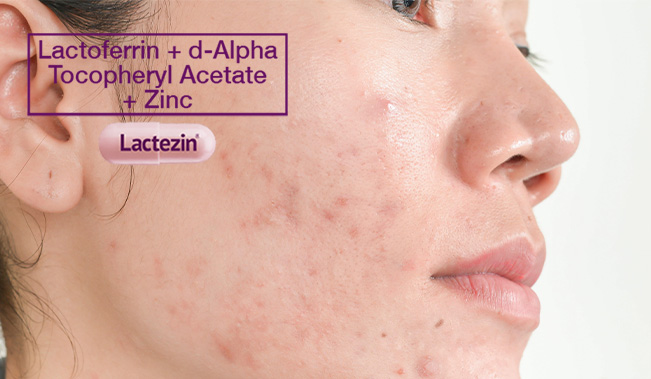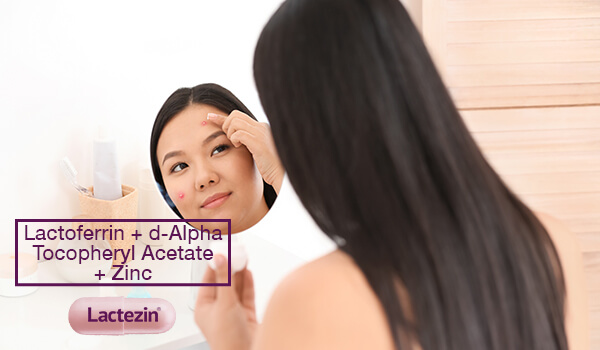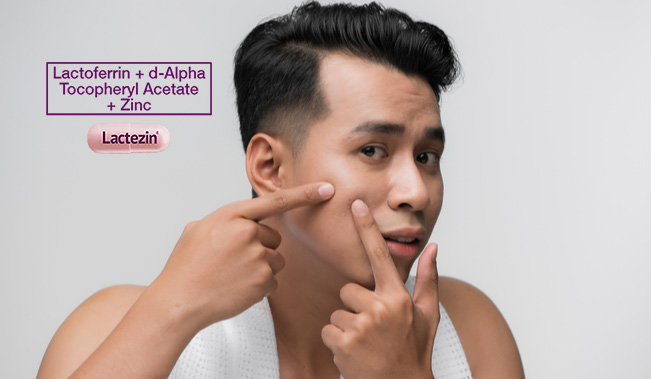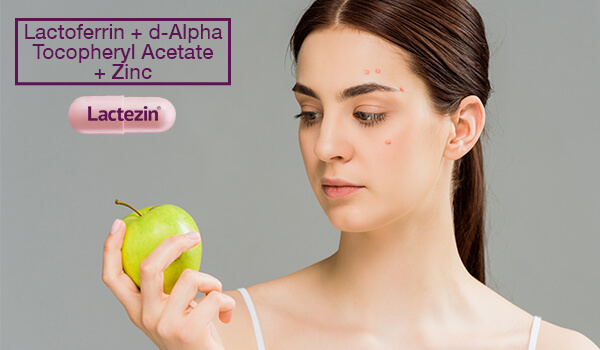The Dos and Don'ts Of Inflammatory Acne Treatment

Inflammatory acne is unquestionably hard to ignore because they are generally larger in size and are more visible, given their reddish appearance. Not only that; inflammatory acne is also one of the most excruciatingly painful forms of acne. Inflammatory acne tends to be warm and sensitive to touch. Apart from this, they are also persistent and more challenging to treat than ordinary acne.
What is inflammatory acne?
Generally speaking, inflammatory acne can be distinguished from non-inflammatory or regular acne by the underlying causes of infection on the pores and the acne’s exact location. Non-inflammatory acne is more superficial, differing from inflammatory acne which goes deeper than the surface of your skin. Inflammatory acne, as the name suggests, is inflamed or swollen acne that contains bacteria and pus. Alternatively, non-inflammatory acne consists only of dirt, oils, and make-up or cosmetic particles.
What causes inflammatory acne?
Pimples or acne get inflamed when the clogged pores become infected with bacteria. Remember that the body lubricates itself through the sebaceous glands. Know that the hair follicles on your body are responsible for cleaning your sebaceous glands.
When the hair follicles fail to clean the sebum in the pores, the sebum gets intertwined with other dead skin cells and bacteria. Consequently, this results in clogged pores and pus generation that lead to inflammatory pimples.
How Does One Prevent Inflammatory Acne?
Inflammatory acne could be challenging to treat especially when located on your t-zones (forehead, cheeks, nose, and chin area). The burning sensation could leave you in a not-so-good mood. Worse, it can affect your overall productivity. Avoid the painful symptoms of inflammatory acne. Here are some of the Dos and Don'ts when dealing with inflammatory acne.
- Don't Touch Your Skin.
Popping pimples may feel good, but if done frequently on inflamed skin, it can damage your skin even more. Leave the popping of your acne to the derma because they know how to remove them properly using the right tools. You, on the other hand, should never touch your skin. Without a doubt, picking at blackheads, whiteheads, and acne or popping them will spread the bacteria. All these actions may irreversibly scar the already irritated and fragile skin.
- Do Get Physical.
Run, jog or swim whenever you have time. Stress can take away your youthful and blemish-free skin from you. Cortisol, the stress hormone, can cause Inflammatory acne. For this reason, it is vital to lower your stress level by exercising. Physical activities stimulate circulation, which can carry body toxins and harmful free radicals off your system.Just do not forget to use clean towels and avoid using exercise equipment without cleaning them first. Also, take a shower before and after each exercise.
-
Do Use Hot and Cold Compress.
Press the clean/sanitized cold compress against your skin for 10 to 15 minutes to minimize the swelling of your acne. Refrain from doing it longer than the prescribed time to stay from numbness. Wrap the ice in a clean cloth or place it in an ice bag before applying it to your skin to avoid getting ice burns. -
Don't Follow Fads.
Pay attention to what you put on your face. Remember, being organic does not imply that everything is risk-free for you to use. Instead, choose traditional yet trusted over-the-counter topical remedies. Hydrocortisone cream and aloe vera gel are efficient anti-inflammatory solutions for swelling acne. Before applying anything on your skin, always remember to conduct an allergy test. Dab a little of the ointment at the back of your neck. Only continue if your body does not react negatively. -
Don’t Take Your Diet for Granted.
The more sugary food you eat, the more your body secretes insulin. Of course, the more insulin your body generates the more oil glands are also secreted. This is why you need to avoid sweet foods like donuts, cakes, and chocolates. Limit your intake of fatty foods as greasy food tends to stay more on the hair follicles. This results in additional oil on your hair follicles that may worsen the inflammation.As revealed by studies, it would be beneficial to consume foods high in zinc and omega-3, such as tuna and oysters. Avoid dairy-based drinks since they have inflammatory effects; instead, drink pineapple juice. Pineapple juice is refreshing and great for swelling.
-
Don't Forget Hygiene at Home!
Do your best not to skimp on cleaning supplies and not to miss a cleaning schedule. Forgetting these things would make your home a breeding ground for different germs and viruses that can affect the skin. It is equally important to use materials with antibacterial properties.Keep your furniture and household items uncontaminated by covering them with a cloth or any clean sheet when not in use. Regularly change pillow cases and bedsheets to avoid oil, germs, and dead skin cells from infecting and inflaming the skin. Lastly, Sanitize your mobile phones because they touch your face all the time.
-
Do Go to the Pimple Experts.
It is still advisable to get professional help if you feel that your problem with inflammatory acne is getting worse or if there is nothing else you can do.If you still need an extra boost when it comes to targeting pimples, ask your dermatologist about Lactoferrin + d-Alpha Tocopheryl Acetate + Zinc (Lactezin). With its clinically-tested and FDA-approved formula, Lactoferrin + d-Alpha Tocopheryl Acetate + Zinc (Lactezin) may help prevent pimples and other acne indicators thanks to three key ingredients:
-
Lactoferrin: As an iron-binding protein, it has antibacterial and anti-inflammatory properties, which helps fight pimple-causing bacteria, assists in reducing sebum production and inflammation, and aids in improving immune function and repair of damaged skin cells.
-
Vitamin E: This antioxidant helps maintain good skin cell health, combats damage caused by free radicals and UV rays, and assists in retaining the skin’s natural moisture while preventing
-
Zinc: This mineral has immune-boosting and anti-inflammatory abilities, helps regulate oil production to improve skin’s overall appearance and aids in healing your skin.
-
Lactoferrin + d-Alpha Tocopheryl Acetate + Zinc (Lactezin) helps treat and prevent pimples when taken twice a day for at least two weeks alongside proper diet and exercise. If symptoms persist, consult your doctor.
Lactoferrin + d-Alpha Tocopheryl Acetate + Zinc (Lactezin) is available in all leading drugstores nationwide. You may also purchase online through ULSSI, Lazada, and Shopee.
SOURCES:
https://www.uwhealth.org/news/exercise-and-acne-how-to-balance-the-breakouts
https://www.beaumont.org/conditions/bad-acne
https://my.clevelandclinic.org/health/diseases/22765-inflammatory-acne


